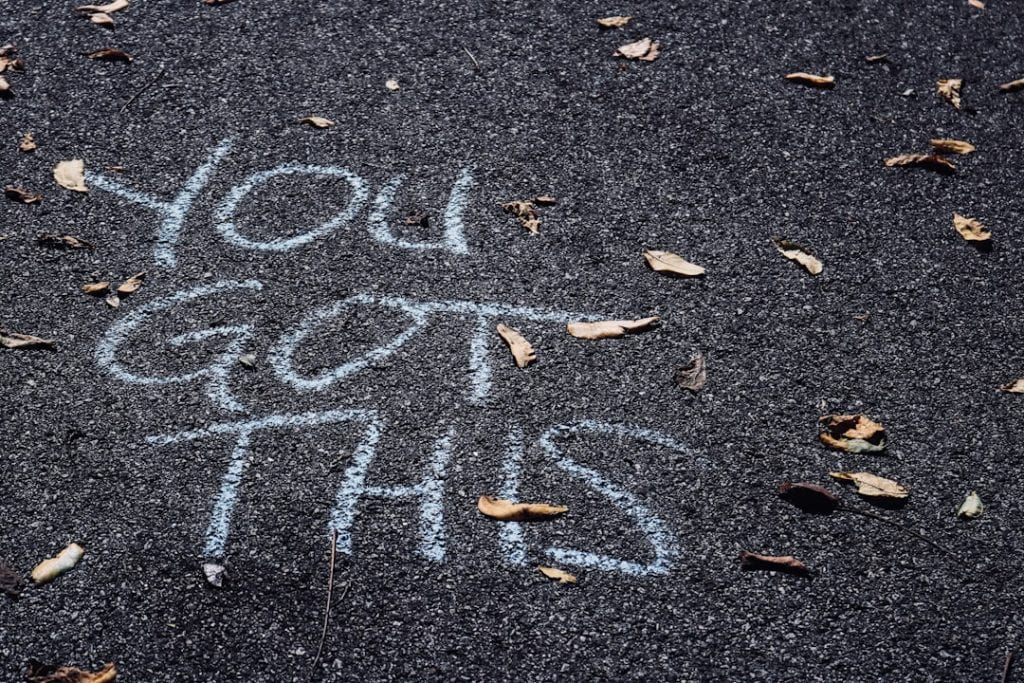What Self-Compassion Really Means
Self-compassion isn’t about pretending everything is fine or forcing yourself into a positive mindset. It’s not about telling yourself to “just think happy thoughts” or comparing your struggles to others who might “have it worse.” That’s not compassion—that’s dismissal.
Real self-compassion is about treating yourself with the same kindness you’d offer a friend who was hurting. It’s about acknowledging your pain without judgment, recognizing that struggle is part of the human experience, and responding to yourself with gentleness instead of criticism.
Think about it: when a friend calls you crying, you don’t tell them to snap out of it or list all the reasons they should feel grateful instead. You listen. You validate their feelings. You remind them of their strength while honoring their current pain. You deserve that same tenderness from yourself.
The Weight of the World We Live In
Before we talk about self-compassion practices, let’s acknowledge something important: we’re not struggling in a vacuum. The world we navigate daily brings unique challenges that impact our mental wellness in real ways.
If you’re a person of color, you’re carrying the weight of systemic racism and microaggressions that others don’t face. If you’re LGBTQ+, you might be dealing with discrimination, family rejection, or constant vigilance about your safety. If you’re a woman, you’re navigating sexism and societal pressures in countless forms. If you hold multiple marginalized identities, these stressors compound.
Your struggles aren’t just “in your head”—they’re often responses to very real challenges in our world. Self-compassion means recognizing this context and refusing to blame yourself for having human reactions to difficult circumstances.
Gentle Practices for Hard Days
When you’re struggling, self-compassion can feel foreign or even selfish. Here are some gentle ways to practice it, especially when it feels hard:
Start Small with Your Inner Voice
Notice how you talk to yourself when things go wrong. If you catch yourself being harsh or critical, try this: pause and ask, “What would I say to a friend in this situation?” Then try offering yourself even a fraction of that kindness.
You don’t have to completely flip your inner dialogue overnight. Sometimes self-compassion is just switching from “I’m such an idiot” to “I’m having a really hard time right now, and that’s okay.”
Honor Your Feelings Without Fixing Them
You don’t have to fix, change, or improve your difficult emotions to deserve compassion. Sadness, anxiety, anger, frustration—they all have a place in your experience.
Try saying to yourself: “This is a moment of suffering. It’s okay to feel this way. I don’t have to make it go away right now.” Sometimes just acknowledging our feelings without trying to change them is the most compassionate thing we can do.
Remember: Rest is Resistance
In a culture that tells us our worth comes from productivity and achievement, rest becomes an act of rebellion. Taking a mental health day isn’t lazy. Saying no to additional commitments when you’re overwhelmed isn’t selfish. Setting boundaries isn’t mean.
Your worth isn’t determined by what you accomplish on your hardest days. Sometimes the most radical thing you can do is simply be gentle with yourself.
Create Micro-Moments of Comfort
Self-compassion doesn’t have to be grand gestures. It can be:
- Making yourself a warm cup of tea and actually sitting down to drink it
- Taking three deep breaths when you notice you’re holding tension
- Wrapping yourself in a soft blanket while you process difficult feelings
- Stepping outside for a moment of fresh air
- Listening to music that makes you feel understood
These small acts of kindness toward yourself matter more than you might think.
When Self-Care Feels Impossible
Let’s be real about something: traditional self-care advice often assumes you have time, money, and energy that you might not have. “Take a bubble bath” doesn’t help when you’re working multiple jobs. “Go for a mindful walk” isn’t accessible when you live in an unsafe neighborhood or have mobility challenges.
Self-compassion recognizes these limitations without judgment. Maybe your version of self-care is:
- Eating something nourishing from the corner store instead of skipping meals
- Setting your phone to “do not disturb” for an hour
- Asking for help, even when it feels hard
- Saying a kind word to yourself in the bathroom mirror
- Remembering that doing your best looks different on different days
The Strength in Struggle
Here’s something our culture doesn’t often talk about: there’s incredible strength in continuing to show up when life feels heavy. There’s resilience in getting through hard days, even when you don’t do it perfectly.
Your struggles have taught you things about yourself that easier times couldn’t. They’ve developed muscles of endurance, creativity, and survival that are uniquely yours. This doesn’t mean you should be grateful for trauma or that suffering is necessary—it just means that your response to difficulty reveals something powerful about who you are.
Building Your Compassion Muscle
Self-compassion is like any other skill—it gets easier with practice. If it feels awkward or unnatural at first, that’s completely normal. Many of us learned early that we had to be hard on ourselves to stay safe, achieve goals, or earn love. Unlearning those patterns takes time.
Start where you are, with whatever feels manageable. Maybe it’s just noticing when you’re being self-critical. Maybe it’s placing a hand on your heart when you’re upset. Maybe it’s reminding yourself that you’re doing the best you can with what you have right now.
You’re Not Alone in This
One of the hardest parts of struggling is feeling isolated in our pain. Self-compassion includes remembering that difficulty is part of the shared human experience. You’re not the only one who has hard days. You’re not the only one who sometimes feels overwhelmed or scared or sad.
This isn’t about minimizing your experience or suggesting that “everyone goes through this.” Your specific struggles are real and valid. But there’s comfort in knowing that the capacity for both struggle and healing lives in all of us.
Moving Forward with Gentleness
As you continue through whatever difficult season you’re in, remember that healing isn’t linear. Some days will feel easier, others harder. Some days you’ll be able to practice self-compassion with grace, others it will feel impossible. All of this is okay.
Your worth doesn’t fluctuate based on your productivity, your mood, or how well you’re coping. You deserve kindness and care simply because you exist. You deserve support not because you’ve earned it, but because support is what humans need to thrive.
The world doesn’t always offer us the gentleness we need, but we can begin to offer it to ourselves. In a society that profits from our self-criticism and insecurity, self-compassion becomes a radical act of resistance.
A Gentle Reminder
If you’re reading this on a hard day, please know: you don’t have to have it all figured out. You don’t have to be strong all the time. You don’t have to pretend you’re okay when you’re not.
What you’re feeling right now—whatever it is—makes sense given what you’ve been through and what you’re facing. You’re not too much, too sensitive, or too anything. You’re a human being having a human experience, and that experience deserves to be met with compassion.
Every piece of your story, including the difficult chapters, belongs in your beautiful mosaic. The struggles don’t diminish your worth—they’re part of what makes you uniquely, wonderfully you.
Be gentle with yourself today. You’re doing better than you think.


